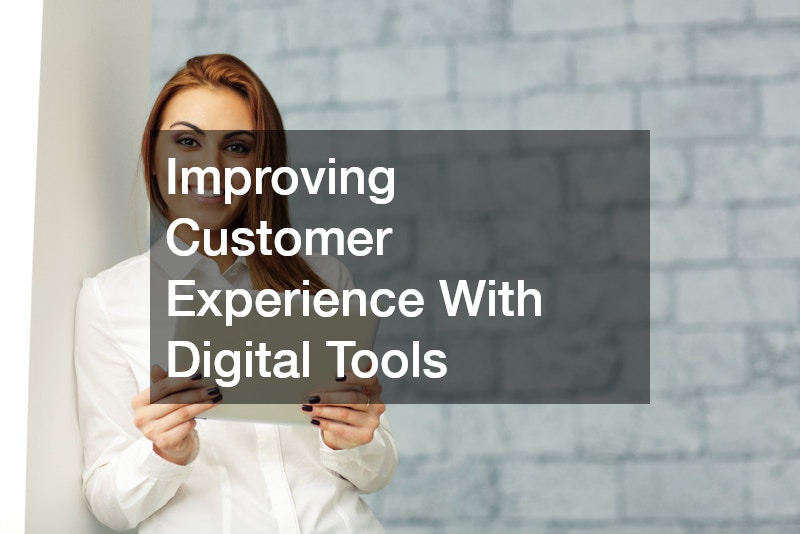Incorporating Technology
The rapid evolution of technology has transformed how businesses operate, offering innovative tools and solutions that improve efficiency, communication, and decision-making. Whether through cloud computing, artificial intelligence, or automation, businesses of all sizes now rely on technological advancements to stay competitive in a fast-paced market. These advancements have made it possible to streamline operations, enhance customer service, and even reduce costs by automating repetitive tasks. Business technology is no longer just an accessory but a vital component in solving common challenges and driving growth.
Business solutions powered by technology provide opportunities to refine processes and explore new markets. For example, implementing data-driven strategies allows companies to make informed decisions that align with their objectives. Moreover, emerging technologies, such as machine learning and advanced analytics, enable businesses to stay ahead of trends and anticipate customer needs.

Understanding the Role of Technology in Modern Business Solutions
Technology plays a pivotal role in how modern businesses approach daily operations and long-term strategies. By integrating business technology, organizations can automate workflows, reduce human error, and increase productivity. For instance, companies can track inventory, monitor deliveries, and respond to customer inquiries faster with the help of software solutions tailored to their specific needs. Whether it’s managing communication or overseeing logistical tasks, technology ensures that businesses are better equipped to handle the increasing complexities of the modern market. The implementation of these solutions provides more accurate and reliable results, which ultimately enhances customer satisfaction and business efficiency.
In the context of a propane delivery service, technology can significantly streamline the process. By utilizing specialized tracking systems, businesses can optimize delivery routes and ensure timely services, improving the overall customer experience. With real-time updates, both companies and customers can stay informed about the status of deliveries, which enhances transparency and trust.
Enhancing Efficiency Through Automated Business Processes
Automation is a game-changer in improving business efficiency and eliminating time-consuming manual tasks that hinder productivity. From scheduling appointments to generating reports, automated systems allow businesses to focus on higher-level strategic goals rather than getting bogged down by repetitive tasks. Automation, when paired with business technology, improves not only internal processes but also customer-facing services. By ensuring faster response times, reducing delays, and cutting costs, businesses can optimize resources while maintaining a high level of service. With streamlined workflows, automated business solutions empower organizations to operate smoothly and effectively.
For a commercial insurance agency, automation offers numerous benefits that enhance operational efficiency. By automating the quote process and document generation, the agency can serve clients more quickly and accurately. Automated systems can also help manage client data, ensuring compliance with industry regulations and improving the customer onboarding process. Whether it’s handling claims or renewing policies, automating these functions reduces the chance of errors and frees up employees to focus on providing personalized service.

Leveraging Data Analytics for Informed Business Decisions
Data analytics has become an essential tool for businesses looking to make informed decisions and gain insights into their operations. By analyzing data collected from various sources, companies can identify trends, measure performance, and predict future outcomes. This process allows businesses to make data-driven decisions that align with their goals, improving overall efficiency and strategy execution. With business technology advancements, even small businesses now have access to powerful analytics tools that can help them better understand customer behavior, optimize resources, and stay ahead of the competition. These insights are crucial in navigating a constantly changing business landscape, where timely and accurate decisions are paramount.
For construction dumpster rental businesses, data analytics provides solutions to better manage assets, forecast demand, and streamline logistics. By analyzing data on rental patterns, availability, and service areas, these businesses can optimize the allocation of dumpsters and improve the timing of pickups and deliveries. Additionally, using data to monitor customer feedback and operational performance can help identify areas for improvement, ensuring that services are continuously refined.
The Impact of Cloud Computing on Business Scalability
Cloud computing has revolutionized how businesses manage data, scale their operations, and collaborate across teams. By moving processes and information to the cloud, companies can reduce infrastructure costs, improve accessibility, and ensure data security. This shift allows businesses to scale their operations quickly, adapting to market changes without the need for large capital investments. With cloud-based business technology, companies can easily integrate new tools, enhance collaboration, and provide employees with access to important resources from virtually anywhere. The flexibility and scalability that cloud computing offers make it an essential component of modern business solutions, particularly for growing businesses looking to expand without the limitations of traditional infrastructure.
For a local roofing service, cloud computing enables improved scalability by allowing the business to manage projects, track employee schedules, and store customer data securely in one centralized platform. With cloud-based solutions, the roofing service can expand its operations into new areas without needing to establish additional physical offices or servers. Employees can access real-time project updates on the go, ensuring that communication and coordination remain seamless.

Improving Customer Experience With Digital Tools
In today’s competitive business environment, customer experience has become a critical factor in driving success. Digital tools play a significant role in enhancing the way businesses interact with their customers, providing more personalized and efficient services. From customer relationship management (CRM) systems to online booking platforms, business technology has made it easier for companies to anticipate customer needs, respond quickly to inquiries, and deliver tailored solutions. These tools also allow businesses to gather feedback and track customer satisfaction, enabling continuous improvement in the services they offer. By leveraging digital tools, businesses can create a seamless, responsive, and engaging customer experience, which is essential for building long-term loyalty.
For a local moving company, digital tools can dramatically improve the customer experience by simplifying the scheduling and tracking of moves. Online platforms can allow customers to easily book services, receive real-time updates on their move, and access instant quotes based on their specific needs. CRM systems enable the moving company to keep track of customer preferences and history, providing a more personalized experience during every interaction. By integrating business technology that focuses on the customer journey, the moving company can ensure that clients feel supported throughout the entire process, from initial contact to the successful completion of their move.
Strengthening Business Security Through Technological Innovation
Security has become a top priority for businesses across all industries, as the threat of cyberattacks and data breaches continues to grow. With advancements in business technology, companies now have access to a wide array of solutions designed to protect sensitive data and safeguard operations. From encryption tools to multi-factor authentication, businesses can implement security measures that reduce the risk of unauthorized access and ensure the safety of their digital assets. Technological innovation also allows companies to detect and respond to potential threats more swiftly, preventing small vulnerabilities from escalating into larger problems. By strengthening security through advanced business solutions, companies can protect both their operations and their reputation.
For a local paving contractor, business technology can enhance security by safeguarding project details, client information, and financial transactions. Contractors often handle sensitive data related to contracts and budgets, which makes implementing security measures vital. By using encrypted communication tools and secure payment processing systems, the paving contractor can ensure that both internal and external data remain protected. Additionally, advanced monitoring software can be used to track employee access to important files, preventing data breaches from occurring.

Utilizing Artificial Intelligence for Streamlined Operations
Artificial intelligence (AI) has transformed how businesses approach operational efficiency, providing powerful tools to automate processes and reduce manual effort. AI can be used to predict trends, optimize resource allocation, and enhance decision-making through data-driven insights. For many companies, integrating AI into business technology has resulted in faster turnaround times, reduced operational costs, and fewer human errors. Whether it’s automating customer service through chatbots or using machine learning algorithms to refine inventory management, AI has proven to be a valuable asset in streamlining operations. With AI-based solutions, businesses can focus on innovation and strategic growth while maintaining a high level of efficiency.
For a drain cleaning business, AI can improve operations by optimizing service routes, predicting equipment maintenance needs, and automating customer inquiries. By analyzing patterns in service calls and geographical data, AI tools can help determine the most efficient routes for technicians, reducing travel time and fuel costs. Additionally, predictive maintenance powered by AI can alert the business to potential equipment failures before they occur, minimizing downtime and ensuring continuous service availability.
Boosting Collaboration Through Communication Technologies
Effective collaboration is essential for businesses that rely on teamwork to achieve their goals, and advancements in communication technologies have made this easier than ever before. Tools such as video conferencing, instant messaging platforms, and project management software have transformed how teams interact, regardless of their physical location. These technologies provide real-time communication, document sharing, and task tracking, ensuring that all team members are aligned and working toward the same objectives. By embracing communication-focused business technology and solutions, companies can improve productivity, reduce misunderstandings, and foster a culture of collaboration that drives innovation and problem-solving. Clear, efficient communication is a vital aspect of business solutions aimed at enhancing teamwork and achieving success.
For a pool cleaning business, communication technologies can improve collaboration between office staff and field technicians. Using mobile communication tools, technicians can receive real-time updates about service appointments, customer requests, or equipment availability, allowing them to respond quickly and efficiently. Project management software can help track tasks, ensuring that the business stays on top of its schedule and client commitments.
Exploring the Benefits of E-Commerce for Business Growth
E-commerce has become a critical avenue for businesses seeking to expand their reach and grow their customer base. By offering products and services online, businesses can transcend geographical boundaries, making it easier for customers to engage with them from anywhere in the world. E-commerce platforms provide the opportunity to market to broader audiences, streamline the sales process, and reduce overhead costs associated with traditional brick-and-mortar stores. Business technology and solutions in the e-commerce space allow companies to automate inventory management, integrate customer relationship management tools, and track sales data in real time. For many businesses, e-commerce represents a solution to achieving sustainable growth by providing more accessibility and convenience for their customers.
For a local tree company, adopting an e-commerce platform can significantly enhance customer engagement and boost sales. By allowing customers to schedule tree care services online, the company can simplify the booking process and reach a wider audience. E-commerce technology can also enable the company to showcase additional services, such as tree health assessments or emergency removals, further encouraging customer interaction. With automated billing and integrated customer feedback tools, the local tree company can improve its service offerings while maintaining a steady flow of business.
Driving Innovation With Emerging Business Technologies
Emerging technologies are at the forefront of business innovation, offering companies new ways to solve problems, streamline processes, and differentiate themselves from the competition. From 3D printing and blockchain to virtual reality and the Internet of Things (IoT), these technologies present endless possibilities for businesses looking to innovate. Business technology and solutions play a crucial role in keeping companies at the cutting edge, helping them to develop new products, enhance operational efficiency, and offer unique customer experiences. By staying informed and adopting emerging business solutions, organizations can maintain a competitive edge and respond to market changes more rapidly and effectively.
For a local excavation company, emerging technologies such as GPS tracking, drone surveillance, and advanced excavation equipment can revolutionize the way the company operates. GPS and drone technology provide real-time monitoring of excavation sites, ensuring that projects are completed with precision and on schedule. Additionally, integrating IoT sensors into heavy equipment can help predict maintenance needs, minimizing downtime and keeping machinery running efficiently.
Maintaining New Business Growth
In an era where technology influences nearly every aspect of business, it is clear that companies must embrace these advancements to remain competitive and efficient. From automation and data analytics to AI and cloud computing, business technology has become an indispensable tool in addressing the unique challenges that companies face today. As demonstrated across various industries, including propane delivery services, construction businesses, and local tree companies, the integration of tailored technological solutions can lead to improved operations, enhanced customer experiences, and substantial growth.

